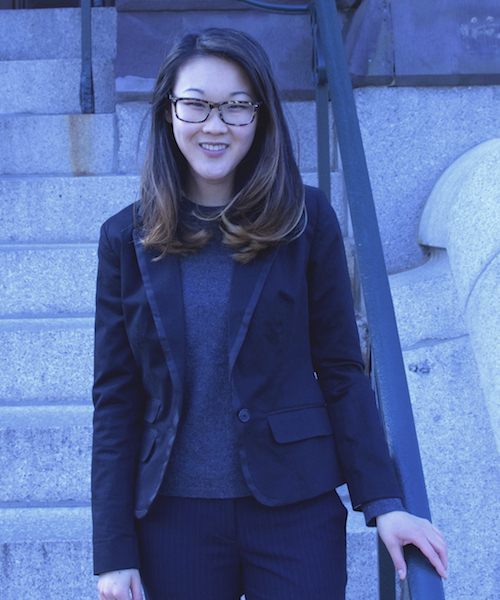
The Behind-the-Scenes Conversations
Andrea Su | August 30, 2019
Responding To: 2018-2019 Student Fellows Reflect on Their Year in the Program
Ivan Solomon
Growing up in North Carolina, most of my exposure to Chinese history and culture was through an “orientalist” lens. Movies like Mulan and commentary during Olympic gymnastics events mythicized China as a timeless land where individualism, in the American conception, was nonexistent. And in a city with few Chinese-Americans, I had to rely on my own critical thinking to deconstruct this narrative. The anti-Black stereotypes I heard in school and media were as baseless as they were harmful. So, I began to think, if what people said about me is false, why would their account of anyone else be true?
My experiences at Pomona College and in the Georgetown U.S.-China Student Fellows program confirmed my early suspicions. Yidai, an international student from Panjin, was the first friend I made at Pomona. Conversation came as naturally with him as with any of my friends from back home. We told similar jokes, liked the same clothes, and when we spoke about our parents’ methods of discipline (shame, shoe-throwing, and lectures about how hard they worked to give us these opportunities), one would think we had been raised in the same household. We had so much in common I began to forget the fabricated differences society had imposed upon us.
As a Middle Eastern studies major, Asian history and politics made few cameos in my courses. However, I was exposed to these subjects through the international relations curriculum. Considering all the stereotypes I had heard in my youth, it came as no surprise that debate around US-China relations was dominated by realism. But this realism did not reflect the reality: it ignored the plethora of similarities between Chinese and American people, history, and culture. During these discussions, I always felt that we unduly focused on competition when there were far more areas of cooperation. Here, the Georgetown Initiative’s aim of changing this dialogue offered a welcomed change.
The Program enabled me to develop my uninformed optimism into semi-informed optimism. As I learned more about Chinese government and foreign policy, it became apparent that some very real differences exist between the two countries, and in some areas, our interests seem to be in direct conflict. However, rather than attributing this competition to fundamental, insurmountable differences, I believe that the governments are at fault.
Pessimists often point to the lack of Chinese domestic opposition as evidence that US-China relations are irreparable. And during my independent travel after to program, I did in fact find that while people were quick to invite me out for a meal, they were reluctant to express criticism against the Chinese government. However, the same could be said in the United States. For a variety of reasons (i.e. patriotism, identity), Americans rarely vocalize criticisms against the government in the presence of foreign audiences. In fact, many Americans do not even exercise their right to vote: a private means of expressing discontent. Therefore, it seems that the major differences between the two countries come on the governmental, rather than societal level.
As I experienced in my youth, these differences trickle down from officials to the public through media and education, and it is important to recognize them as manufactured. Americans and Chinese aspire for many of the same comforts—safety, prosperity, security—their governments just use different tools to realize these aims. Conversations arranged by the Initiative highlighted these fundamental similarities, centering the debate on future cooperation rather than competition. As a cohort, we engaged in constructive dialogue which raised my hopes for the next generation of relations. After all, governments are made of people, and our people are not so different.

Andrea Su | August 30, 2019

Junming Cui | August 30, 2019

Yihong Shi | August 30, 2019

Zhaoqing Li | August 30, 2019

Isabelle Hupez | August 29, 2019

Jozanne Murphy | August 29, 2019

Xiaogu Xu | August 29, 2019

Aaron Baum | August 28, 2019

Chang Fan | August 28, 2019

Danny Li | August 28, 2019

Lakshmi Iyengar | August 28, 2019